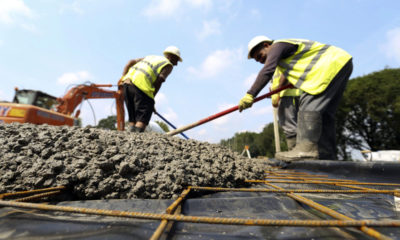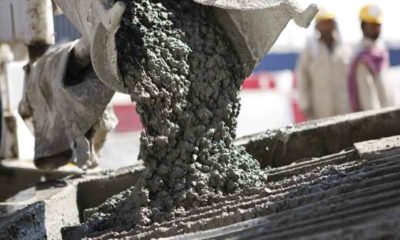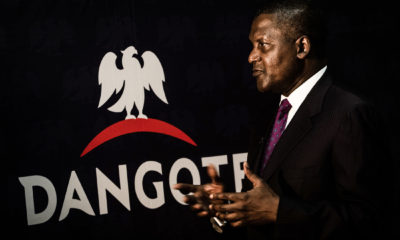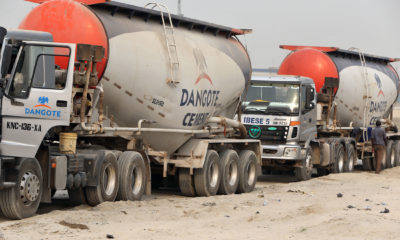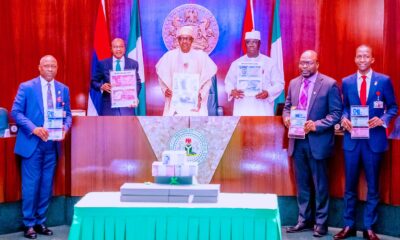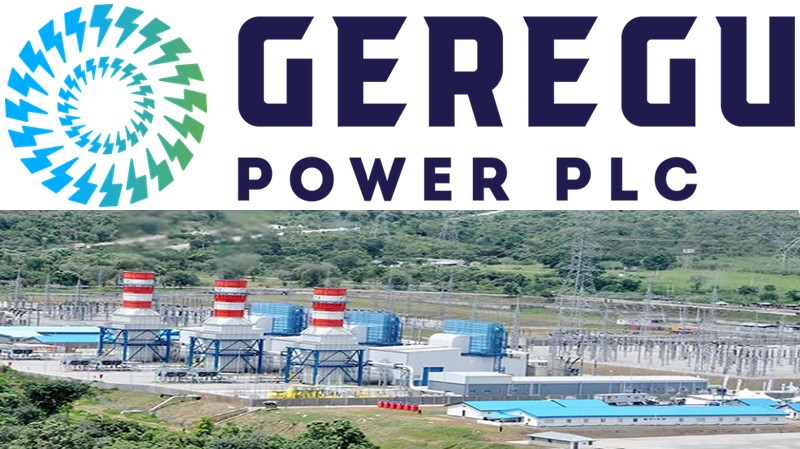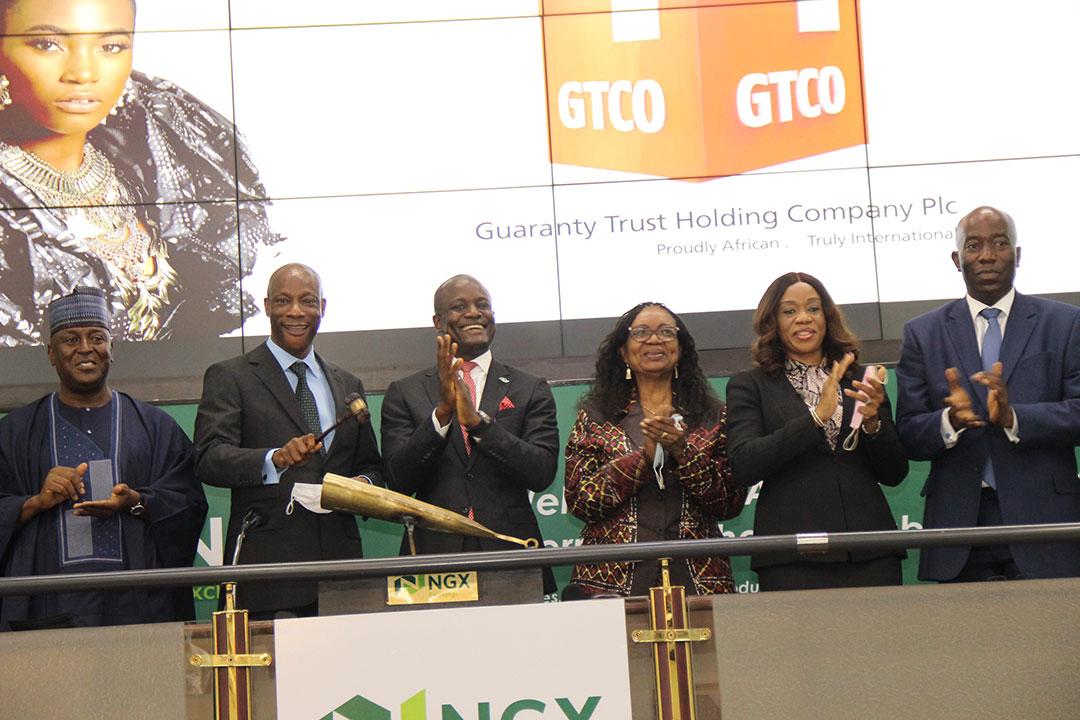Moody’s Investors Service on Friday downgraded Dangote Cement plc (“DCP”) long term corporate family rating (CFR) to B2 from B1, the national scale long term corporate family rating to Aa3.ng from Aa2.ng and the probability of default rating (PDR) to B2-PD from B1-PD.
At the same time, Moody’s has affirmed the (P)B2 local currency rating and Aa3.ng national scale rating assigned to the NGN300 billion domestic medium-term note program (DMTN) and the B2 local currency and Aa3.ng NSR to the senior unsecured notes issued by DCP. Moody’s has also changed the outlook to negative from ratings under review.
“The downgrade of the CFR to B2 is driven by the increase in dollar debt in DCP’s capital structure which was not initially contemplated in the B1 rating. This exposes DCP to increased currency risks because most its cash flow are generated in naira and other African currencies and the fact that all the dollar debt has maturities of less than a year. This currency risk is captured under Moody’s B2 foreign currency ceiling of Nigeria which is limiting the ability of DCP to be rated higher”, say Dion Bate (Vice President – Senior Analyst), the lead analyst for Dangote Cement.
“The downgrade however is not driven by concerns around the cement fundamentals in Africa or the business, which continues to perform strongly”, adds Mr. Bate. This rating action concludes the review for downgrade, which was initiated on 5 August 2021.
The downgrade to B2 reflects the increased amount of dollar debt to around 230 billion naira equivalent, representing 43% of total debt as of 30 September 2021, up from 71bn naira equivalent in 2019. While DCP has begun generating dollar revenue through exports and repatriations of dollar cash flow from its other African operations, it is still reliant on the Central Bank of Nigeria for dollars, which remains restricted. The high proportion of dollar debt in the capital structure exposes DCP to currency risk, which included among others access to dollars and naira weakness, that is captured by Nigeria’s foreign currency ceiling of B2 instead of Nigeria’s Ba3 local currency ceiling assigned by Moody’s. Under Moody’s methodology approach, Nigeria’s B2 foreign-currency ceiling, limits the ability of a domestic corporate, that has meaningful foreign currency obligations, to be rated higher which constrains a company’s rating. It is management’s expectation that over time as dollar export revenue grow (currently around 4% of revenue) DCP would be able to internally fund its demand for dollars and eliminate the need for dollar facilities.
The affirmation of the B2 ratings assigned to the DMTN program and senior unsecured notes reflect Moody’s position that the previous notching considerations of one notch below the CFR is no longer appropriate. This is because of the low secured debt in the capital structure, sustainably low group leverage and high unencumbered asset base in Nigeria that provide sufficient recovery protection for senior unsecured lenders.
DCP’s B2 and Aa3.ng CFR’s are supported by the company’s (1) strong market presence in Nigeria and other African markets in which it operates; (2) high gross margins of above 60% on a Moody’s-adjusted basis; (3) low leverage of 0.9x, as measured by gross debt/EBITDA, and high interest coverage of 10.8 x, as measured by EBIT/interest expense, for the last 12 months (LTM) ending 30 June 2021; and (4) prudent financial policies that ensure credit metrics remain strong through operating and project build cycles.
The ratings also factor (1) the relatively small scale level of cement production when compared to global peers, with production of 25.7 million tons (mt) for 2020; (2) single product exposure being cement; (3) a concentration of production in Nigeria (Government of, B2 negative), representing 70% of revenue for LTM 30 September 2021; (4) high reliance on short term debt funding and an aggressive dividend policy that exposes the company to liquidity risk.
DCP’s liquidity profile is adequate but is exposed to ongoing refinancing risks because of the large portion of short term debt equal to NGN343 billion, representing 64% of total debt as of 30 September 2021. While DCP has strong cash generation with a cash balance of N179.1 billion, it pay large dividends (N272 billion in May 2021) which temporarily weakens its liquidity. Moody’s recognises that DCP has a good track record of accessing the local funding market given its low leverage, blue chip corporate status in Nigeria and strong local banking relations. Furthermore, its main shareholder DIL could support DCP as done in the past, if required.
The negative outlook mirrors the Nigerian sovereign’s negative outlook, reflecting our view that DCP’s credit quality is predominantly tied to the economic and political developments in Nigeria. The negative outlook further reflects DCP’s reliance on short-term funding and its high annual dividends, which expose the company to a potential liquidity shortfall over the next 12-18 months.
Globally, the building materials sector has high credit exposure to environmental risks. The cement industry is energy intensive and the mining and manufacturing process for cement production consume large amounts of coal, electricity and water. DCP’s production meets domestic emission standards and the company has implemented measures to improve energy efficiencies and transition to cleaner natural gas for its power needs.
Factors That Could Lead to an Upgrade or Further Downgrade of Dangote Cement
A rating upgrade is unlikely, because DCP’s B2 rating is constrained by the Nigerian government’s foreign currency ceiling of B2. Because of the high revenue contribution from its domestic operations, there is a strong link between DCP’s rating and the sovereign rating, which prevents DCP from being rated higher than the foreign currency ceiling of Nigeria. If the sovereign rating or foreign currency ceiling were to be upgraded, DCP would need to demonstrate a track record of good liquidity management for an upgrade to be considered.
DCP’s ratings are likely to be downgraded in the case of a downgrade of the Nigerian government rating or foreign currency ceiling. A downgrade could also occur if (1) DCP’s liquidity is weak; (2) the Nigerian government introduces special taxes, levies or other punitive measures that negatively impact DCP’s profit or cash flow, such that operating margins fall below 20% on a sustained basis and adjusted debt/EBITDA trends above 4.0x or adjusted EBIT/interest expense trends below 2.5x; and (3) DCP moves away from its policy of matching the currency of its underlying cash flow with that of its debt.


 Forex2 weeks ago
Forex2 weeks ago


 Naira2 weeks ago
Naira2 weeks ago
 Billionaire Watch1 week ago
Billionaire Watch1 week ago
 Company News4 weeks ago
Company News4 weeks ago




 Naira2 weeks ago
Naira2 weeks ago




 Naira1 week ago
Naira1 week ago




 Naira4 weeks ago
Naira4 weeks ago
 Nigerian Exchange Limited4 weeks ago
Nigerian Exchange Limited4 weeks ago

